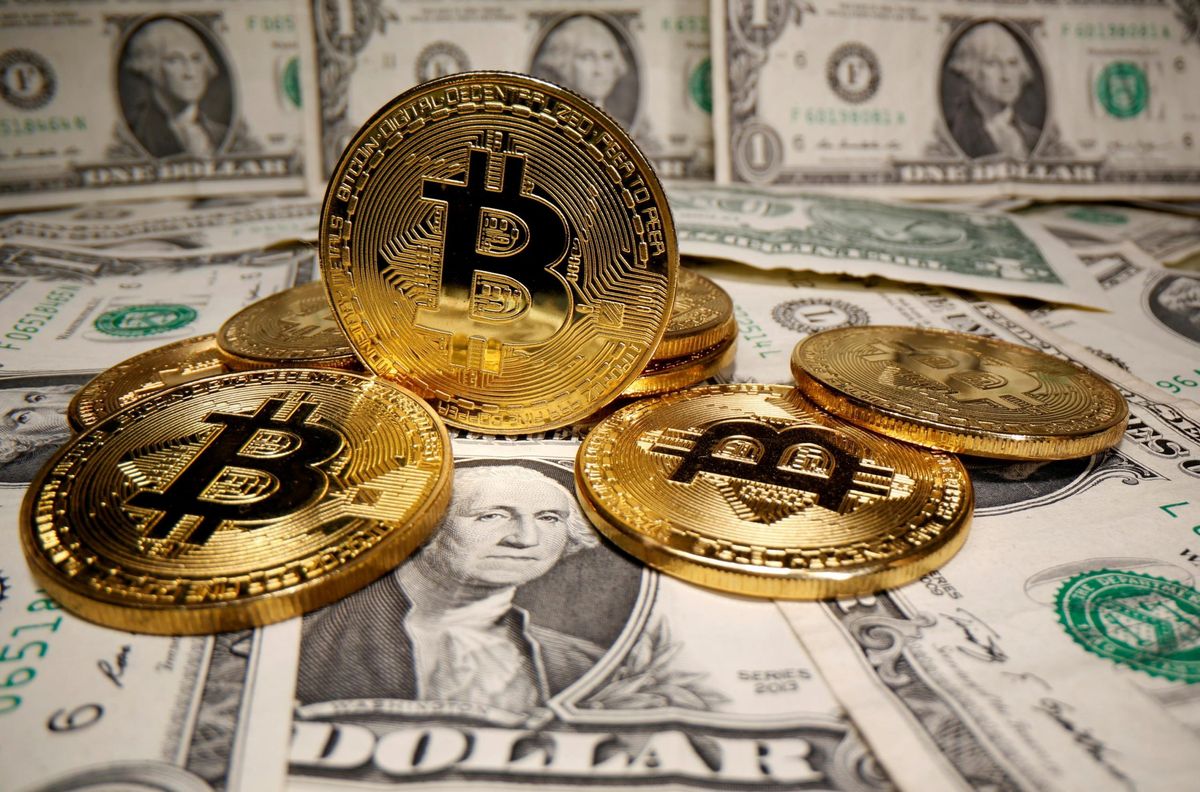How far along is the US in developing its own digital currency?

A few minutes every morning is all you need.
Stay up to date on the world's Headlines and Human Stories. It's fun, it's factual, it's fluff-free.
Officials at the Federal Reserve Bank of Boston and the Massachusetts Institute of Technology (MIT) have been developing prototypes for a platform that uses digital currency and they plan to unveil their research by July.
I use a bank card. Isn’t that digital currency?
- When we use payment methods such as PayPal, Venmo and credit cards, what we’re using is actually electronic money (e-money), which is not the same as digital currency.
- Electronic money, or e-money, is the money balance stored electronically on a server.
- For example, the United States keeps only one tenth of its total cash in physical form, the rest is held in banks as an electronic record.
- Credit cards and electronic payments simply record the use of that physical money. These recordings are managed by a third party, such as a bank.
How does e-money work?
- At the moment, it works like this: If you go to a McDonalds and get a drink with your bank card, you are telling McDonalds, “I don’t have the physical cash on me, but you trust my bank and they’ll transfer the money from my account over to you later.”
- You are essentially giving McDonald’s an IOU (I Owe You) and the bank, if the transaction is successful, is saying, “Yeah, this person has that money. We can send it over later.”
- E-money is that IOU. It’s also how checks (remember those?) used to work and it’s also why checks were phased out. It took too long to determine if the money was there.
- Sure, bank cards are faster, but they make errors possible because there is still a delay between the exchange. This is why you get punished with a bank overdraft fee if you take out too much money.
- These IOUs inherently have no monetary value and are still quite slow, which is why digital currencies are so popular.
What’s digital currency?
- Digital money, on the other hand, has no original physical form and is created and located entirely on an online network.
- With this comes speed and fewer errors.
- Digital currency has just as much, if not more, security than physical currency. Digital currency is built on secure networks that prevent it from being reproduced or replicated.
- The most common forms of digital currency these days are located on the blockchain and include Bitcoin, Ethereum, Dogecoin and many other currencies.
How would the US and other central bank’s digital currency be different to Bitcoin?
- The fundamental difference is that cryptocurrencies such as Bitcoin and Ethereum are decentralized.
- Right now, banks don’t just rely on one person to store records of how money has moved. Multiple people have this data.
How close are other countries to launching their own digital currencies?
- China has already started experimenting with digital currency in their biggest cities, such as techhub Shenzhen. So have small countries like Ecuador.
- Actually, 80% of the world’s central banks are looking to try to implement digital currencies into their countries. But very little is known about the technology backing these digital currencies as well as their timelines.
- The reason why the introduction of digital currencies is so important to the US and China is because of the current tensions that exist between the two.
- With China introducing its own currency, US financial sanctions also don’t have as much of an impact.
When will the US’ digital currency be launched?
- Officials at the Federal Reserve Bank of Boston and the Massachusetts Institute of Technology (MIT) have been developing prototypes for a platform that uses digital currency and they plan to unveil their research by July.
How do people feel about a centralized digital currency for the US?
- Neha Narula, the director of the Digital Currency Initiative at the Massachusetts Institute of Technology’s Media Lab, is a supporter of the US utilizing digital currency.
- “The rest of the world is embracing digital money. It’s time the U.S. caught up,” she told The Wall Street Journal.
- Lawrence H. White, a professor of economics at George Mason University and a senior fellow of the Cato Institute’s Center for Monetary and Financial Alternatives, sees things differently.
- “Those who say the U.S. government needs to act to ensure the dollar doesn’t lose its dominance to another nation’s digital currency or a private cryptocurrency have it backward,” White says.
Have a tip or story? Get in touch with our reporters at tips@themilsource.com




Comments ()